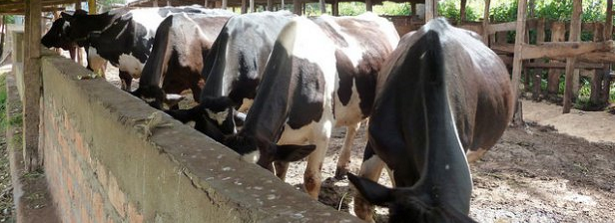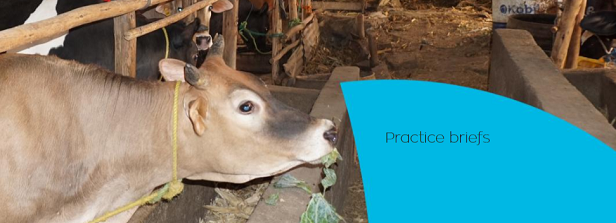Business models Ethiopian and Kenyan dairy chains

Duration: October 1, 2017 – April 30, 2020
Project information
Summary: This research project “Inclusive and climate smart business models in Ethiopian and Kenyan dairy value chains (CSDEK)” is connected to the CCAFS project “Nationally Appropriate Mitigation Actions (NAMA)” for Dairy Development in Kenya. NAMA supports stakeholders in Kenya to design/pilot activities to reduce GHG emissions from dairy production. Despite the many initiatives in the dairy sector, scaling up of good practices is lagging behind. This research aims to describe business models of chain actors and supporters to identify opportunities for scaling up good climate smart practices. Six dairy value chain case studies will be purposely selected, three in Kenya and three in Ethiopia, with varying degrees of market-orientation. Three PhD students will be lead investigator, each in two selected chains. Relevant chain stakeholders (actors, supporters, influencers) will be actively involved in the design, data collection and sharing of research output, particularly those with influence to scale up.
CCAFS project alignment: The East African “Nationally Appropriate Mitigation Actions” (NAMA) project for Dairy Development is implemented by UNIQUE and is supporting the Government of Kenya to develop mitigation actions for its dairy sector, by working with CCAFS research partners, including UN FAO, ILRI, ICRAF and the private sector to develop the institutional framework, value proposition and investment framework as well as the monitoring and measurement, reporting and verification (MRV) system.
UNIQUE will ensure the NWO-funded research is linked with the CCAFS project by:
- Ensuring that the NWO-funded research is in line with the broader research and development objectives of the CCAFS initiative;
- Linking the researchers with key stakeholders in the broader CCAFS initiative;
- Facilitating researchers and other stakeholders to elaborate a joint research approach;
- Facilitating uptake of research outputs by next users, and promoting visibility of the project in the CCAFS-related network;
- NWO and CCAFS funds are used to research complementary topics in the same value chain. The NWO-funded PhD student researches resilience at household level including intra-household dynamics, and UNIQUE will contribute in the quantification of GHG emissions so that collectively the study can look at synergies or trade-offs between the two climate-smart topics.
Country: Ethiopia and Kenya.

